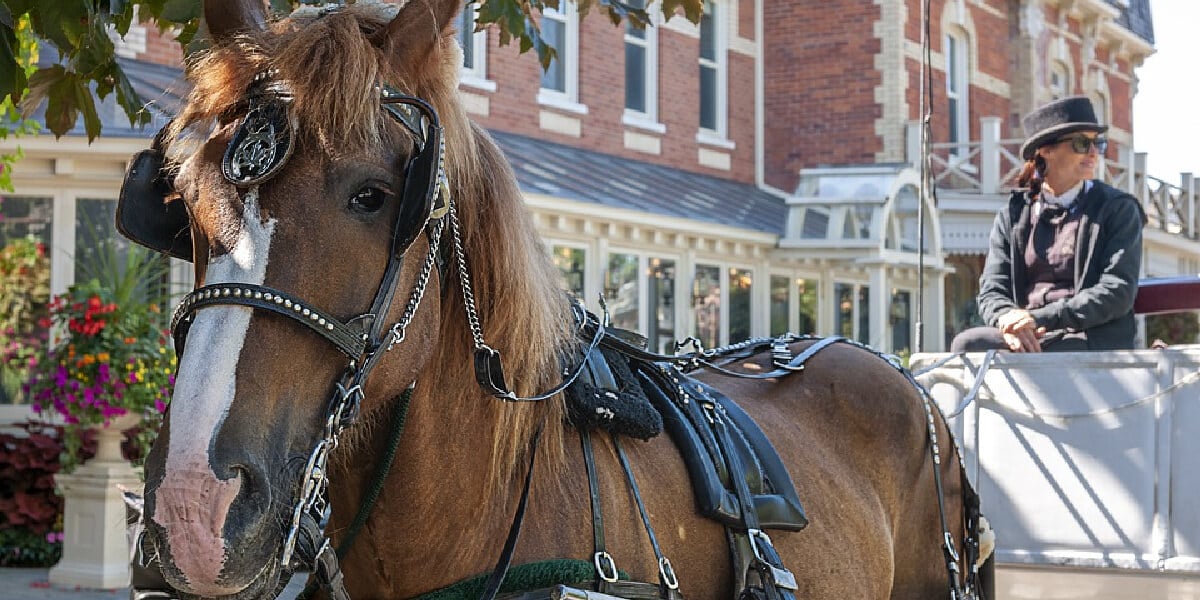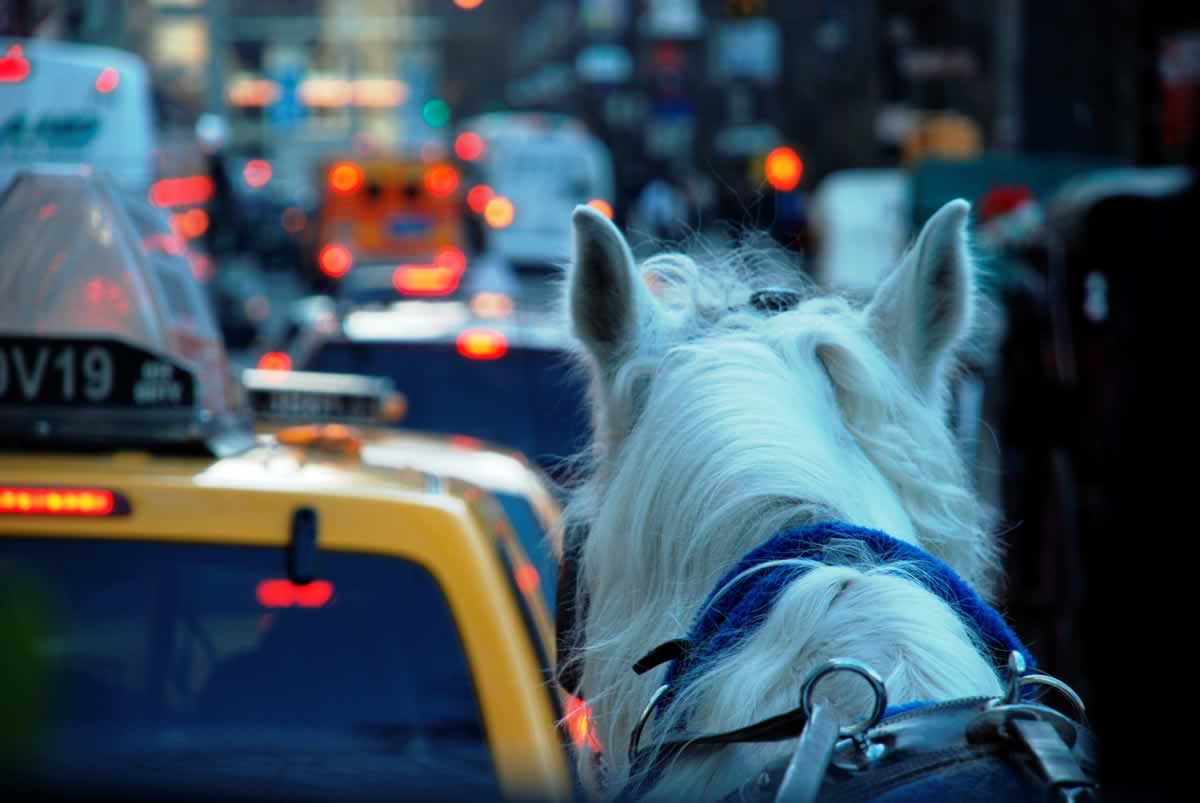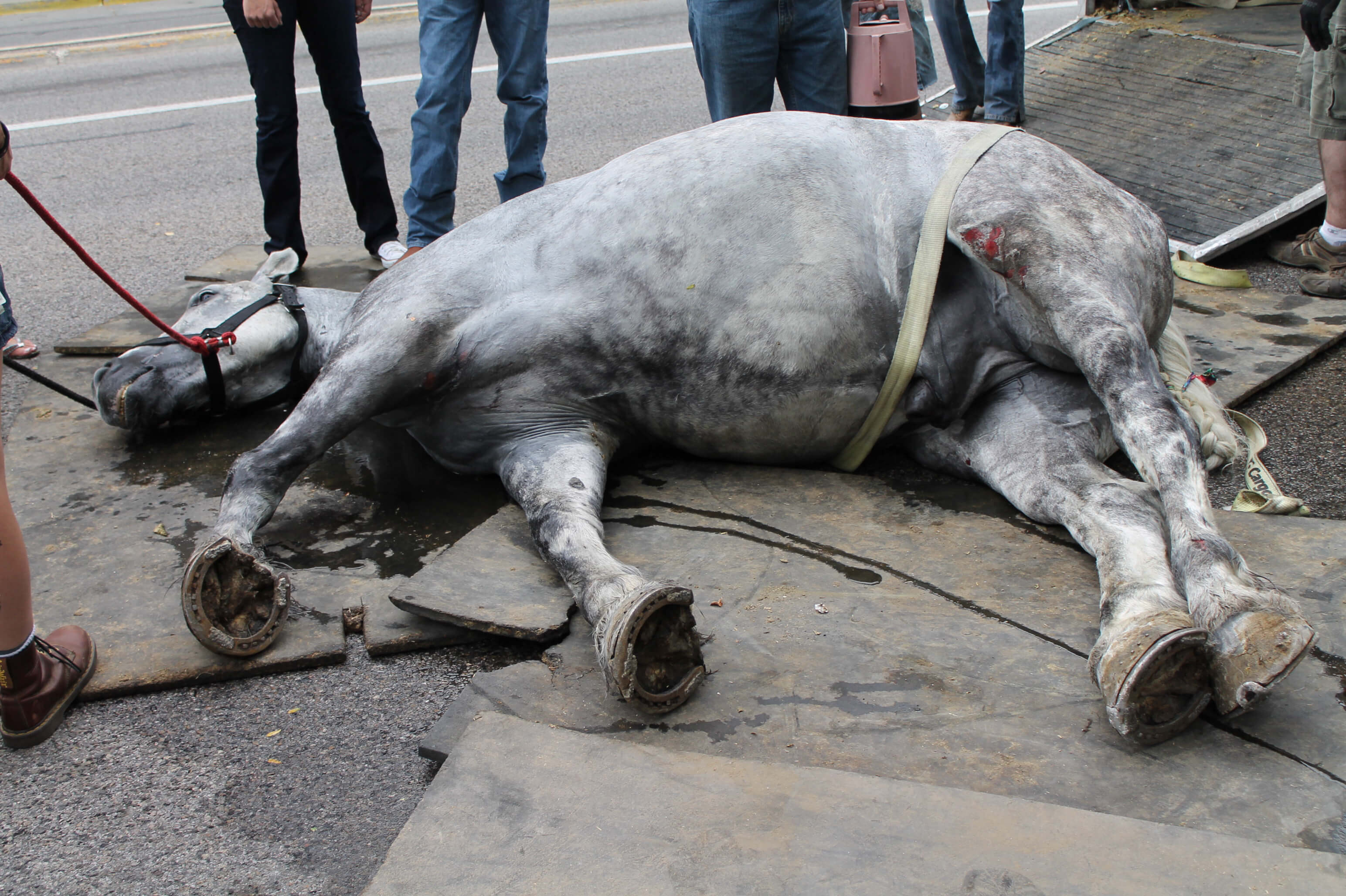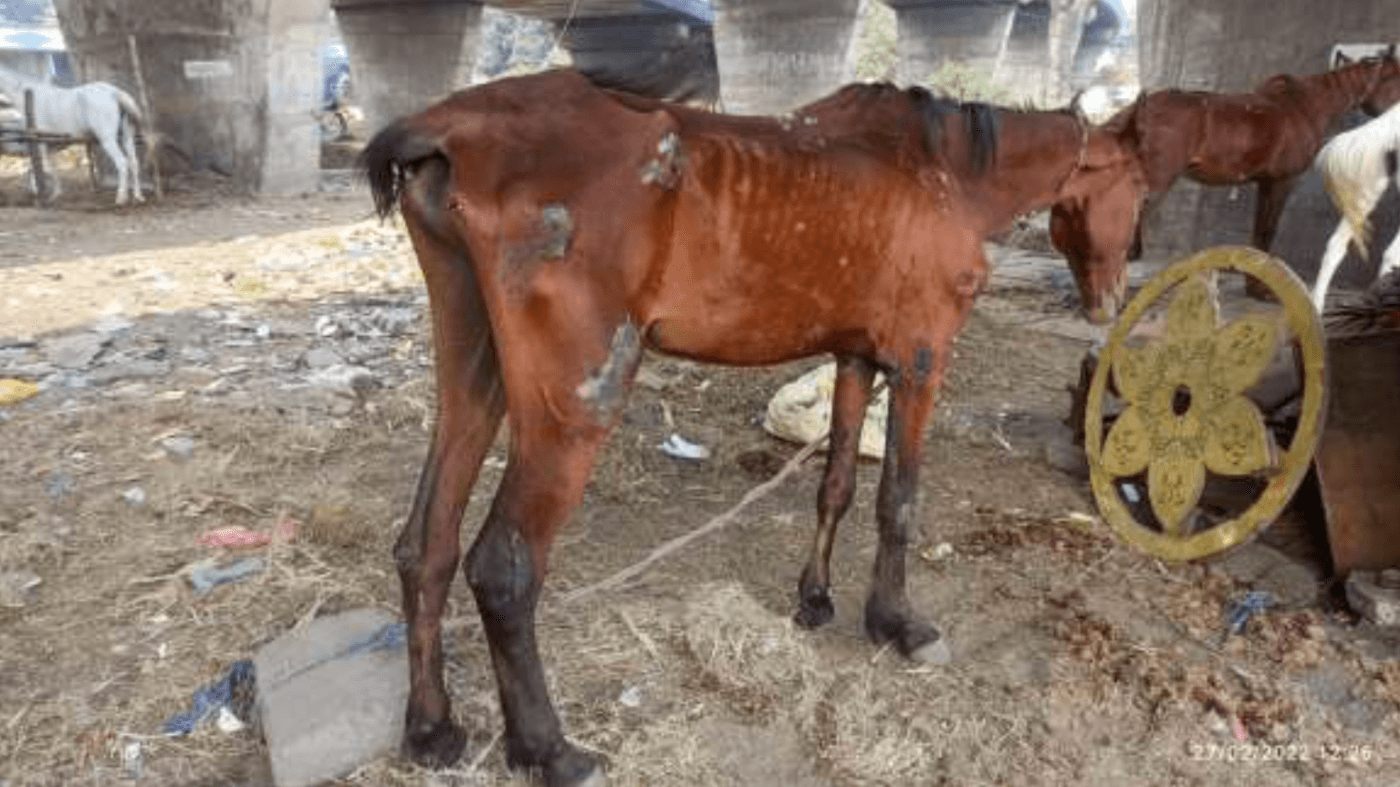End Your Marriage to the Carriage: How Horses Endure Cruelty in Cartagena
Have you heard about horse-drawn carriages in Cartagena, Colombia, and the abuse involved in this speciesist pastime? Here are the horrific facts:

What Horses Endure When Pulling Carriages in Cartagena and Worldwide
Carriage drivers force horses to toil for hours on end in extreme heat, dodging traffic and pounding the pavement all day. Walking on hard surfaces may cause horses to suffer from debilitating leg problems, and breathing in exhaust fumes can lead them to develop respiratory ailments. Handlers often give them little water, very small portions of food, and sparse shade or rest.

Horses and heavy city traffic can also be a deadly mix. Horses aren’t comfortable among cars and trucks, and many accidents, injuries, and even deaths—including of humans—result from them becoming frightened in traffic.
Drivers who force horses to pull carriages in excessive heat can cause them to collapse and die from heatstroke or dehydration.

How Cartagena Has Become Deadly for Horses
In Cartagena, the main tourist destination in Colombia for people all over the world, there are about 60 horse-drawn carriages that offer hours-long tours around the colonial district. Some tours are at night and last three hours—after the horses have already worked all day. Any tour can last longer and can go outside the city walls if requested. Countless horses in Cartagena have died from this abuse.
Some horses are so malnourished that their bones protrude. Drivers often force them to wear ridiculous outfits all day long in the sweltering heat and to work when they’re injured or sick. After this exhausting labor, they’re unable to rest, as handlers confine them to filthy, unlicensed, and makeshift stables plagued by insects attracted to their feces and urine.

Some have no horseshoes or have defective ones, inflicting great pain. In 2022, it was found that over 40 horses in Cartagena exceeded the age limit established for them to haul a carriage.
A 2013 ordinance regulates the city’s horse-drawn carriages’ operation, including work hours, horses’ weight, and the number of passengers, but animal advocates point out that the regulations aren’t being enforced.
Several horses have been severely injured or have died in the streets. According to one article, “[A] horse suffered a heart attack and died in the middle of Bocagrande avenue, one of the main areas frequented by visitors, and another collapsed while drawing a carriage with passengers.” The piece also mentions that “a severely malnourished and dehydrated horse fell while pulling a carriage with five tourists” and that “another horse died of collapsed lungs and cardiac arrest due to exhaustion.” Tourists must stop funding this cruelty.
The Heartwarming Natural World of Horses
Horses are sensitive individuals who deserve compassion and care. They use their eyes, nostrils, and ears to express their feelings.

Horses are also intelligent and can solve advanced cognitive challenges that involve categorization learning and even concept formation. They also have great long-term memories, especially of places where they were scared.
Horses can feel stressed and isolated if forced to live alone. They also mourn others’ deaths.
A Comedian in Cartagena Hops to It for Horses’ Rights
Alejandro Riaño, a prominent comedian, joined in the Colombian people’s outrage over horse-drawn carriages in Cartagena after he saw firsthand their day-to-day cruelty when he visited the city in 2022.
In response, Riaño created a fundraiser for Cartagena’s first electric replacement for horse-drawn carriages. In less than 24 hours, with the help of his followers, he managed to raise the money to provide the city with the first test models.
The vehicle has been ready for six months. It’s a car with a seven-passenger capacity, a charging option for solar panel stations, and a range of 74 miles when fully charged. Riaño aims to have it approved and on the street in a matter of weeks.
Compassionate Alternatives to Horse-Drawn Carriages in Cartagena
Instead of exploiting horses or other animals for entertainment, cruelty-free activities in Cartagena include the following:
- A stroll through the historic city center
- Free walking tours and hikes
- Visiting the historic Castillo San Felipe de Barajas—the most famous landmark in Cartagena—built in 1657 for protection against pirates

Tourists can also spend time on the beautiful shores of Playa Blanca or go island-hopping on a boat tour of the Rosario Islands, one of Colombia’s most popular destinations. This archipelago, located about 62 miles off the coast, is a natural, national park.

How You Can Help Horses in Cartagena and Elsewhere
Never take horse-drawn carriage rides, and tell your family and friends why they shouldn’t either. Urge Cartagena legislators to ban them by politely commenting on the Alcaldía de Cartagena social media pages on Facebook, Twitter, and Instagram.

Take further action for suffering horses, and help end the carriage trade in New York City:
And keep learning more about how to be a compassionate tourist:

